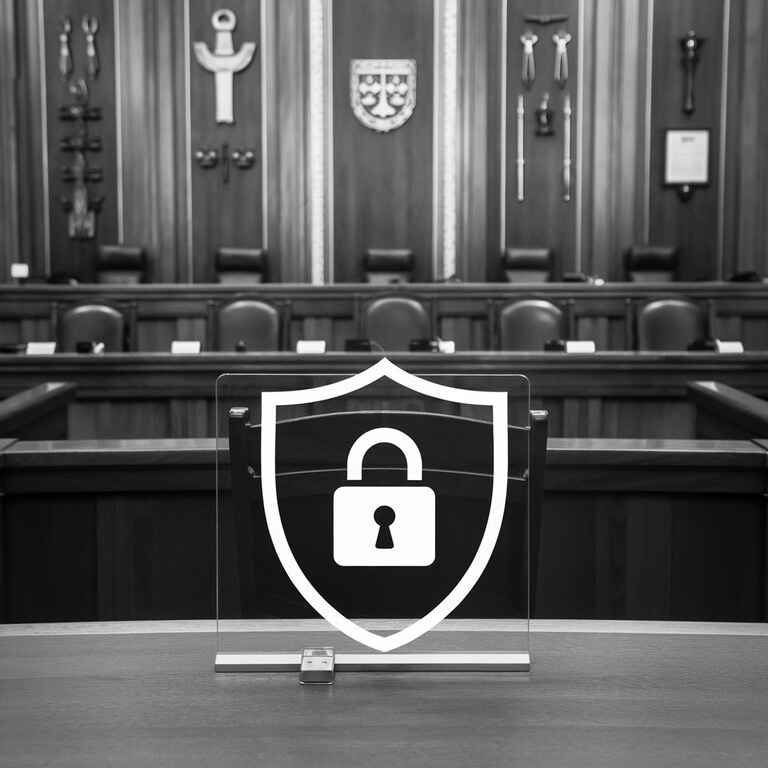Social media is increasingly critical in family law cases, including those in Nevada family courts. Platforms such as Facebook, Instagram, and Twitter often contain information that can be evidence in divorce, custody, and support disputes. However, collecting and using this information must be balanced with the privacy rights of all parties involved.
This article examines how social media evidence is treated in Nevada family courts, the legal framework governing its use, and the impact of privacy laws on evidence collection and admissibility. By understanding these factors, individuals can confidently navigate the complexities of family law cases.

 Legal Framework for Social Media Evidence in Nevada Family Courts
Legal Framework for Social Media Evidence in Nevada Family Courts
Federal Laws Governing Social Media Evidence
Social media evidence is often subject to federal laws, which aim to protect privacy while ensuring that relevant information can be accessed legally:
- Stored Communications Act (SCA):
- Protects private communications stored by service providers, such as emails and direct messages.
- Prohibits unauthorized access to social media accounts, ensuring that content cannot be obtained without proper legal procedures.
- Fourth Amendment Protections:
- This applies to government entities, requiring law enforcement to obtain a warrant before accessing private social media content.
- While not directly applicable to civil cases, it underscores the principle of lawful evidence collection.
Nevada-Specific Laws on Social Media Evidence
Nevada’s laws provide additional guidance on how social media evidence can be used in family courts:
- Rules of Admissible Evidence:
- Nevada courts require that social media evidence be relevant, authentic, and reliable.
- Screenshots, metadata, and witness testimony may be needed to verify the authenticity of the content.
- Privacy Protections in Civil Cases:
- Nevada law prohibits unauthorized access to another person’s social media accounts.
- Violations of privacy laws can result in evidence being excluded from court proceedings.
Types of Social Media Evidence Commonly Used in Family Court Cases
Public Social Media Posts
Publicly available social media content is often used as evidence because it does not require special permission to access. Examples include:
- Photos and Videos:
- Pictures showing lifestyle habits, parenting practices, or undisclosed assets.
- Videos that capture interactions, events, or statements relevant to the case.
- Status Updates and Comments:
- Posts that reveal emotions, intentions, or plans.
- Comments from others that corroborate or contradict claims made in court.
Private Communications
Private messages, while more challenging to obtain, can also play a key role in family law disputes:
- Direct Messages and Chats:
- It may contain admissions, threats, or other evidence pertinent to the case.
- Must be obtained legally, typically through subpoena or discovery processes.
- Emails and Group Messages:
- Useful for uncovering collaborative actions or hidden agendas.
Metadata and Technical Evidence
Metadata provides critical context to social media evidence, enhancing its credibility:
| Type of Metadata | Relevance |
|---|---|
| Timestamps | Verifies when posts or messages were made. |
| Location Data | Shows where individuals were at specific times. |
| Edit Histories | Identifies changes made to posts or captions. |
Metadata often requires expert analysis to ensure proper authentication in court.

Privacy Rights and Their Impact on Evidence Collection
Limits on Accessing Social Media Accounts
Privacy laws generally protect Social media accounts. No one can access your account without permission unless they follow proper legal steps. In family court cases, privacy protections are crucial in ensuring fairness. Here’s what you need to know:
- Unauthorized Access:
- Hacking into someone’s social media account or accessing it without permission is illegal.
- Even if the content seems relevant, courts may exclude evidence obtained illegally.
- Proper Legal Procedures:
- Attorneys can request access to social media content through subpoenas or discovery requests.
- This process ensures that evidence is obtained ethically and legally.
- What Happens if Privacy Laws are Violated?
- If someone breaks privacy laws, it can lead to the exclusion of evidence in court.
- Violating privacy rights could even result in legal consequences for the person who obtained the information illegally.
Ethical Considerations for Social Media Monitoring
While legal protections are in place, ethical considerations also guide how social media evidence should be gathered and used. Attorneys and investigators must navigate these gray areas with caution.
- Respecting Privacy:
- It’s essential to respect the privacy of the parties involved.
- Investigators should avoid going beyond what is necessary to the case, especially when it involves personal or private content.
- Disclosure and Transparency:
- Full disclosure should be made to the court when gathering social media evidence.
- Courts may question the legality of evidence if signs indicate it was obtained unethically.
- Nevada-Specific Ethical Guidelines:
- Nevada lawyers are governed by state bar rules, which require ethical conduct in all aspects of their practice, including how evidence is obtained.
- Ethical lapses can undermine a case and harm the reputation of the legal professional.
Role of Social Media Evidence in Divorce Cases
Social media evidence can be a game-changer in divorce cases. The content shared online can directly impact various aspects of a divorce, from financial division to spousal conduct. Let’s take a closer look at how social media can shape these cases.
Financial Disputes and Asset Division
Social media can provide a window into hidden or undisclosed wealth when dividing assets. Here’s how:
- Evidence of Hidden Assets:
- Social media posts may reveal expensive purchases or vacations that weren’t previously disclosed.
- Photos showing new luxury items or activities may suggest that one party hides assets.
- Lifestyle and Financial Behavior:
- Social media can also show how one party spends money, which may affect alimony or asset division decisions.
- For example, posts showing lavish spending could lead to a judge questioning the party’s financial transparency.
- Proving or Disputing Claims:
- If one spouse claims financial hardship, but their social media shows frequent dining out or vacations, it can be used to challenge their statements in court.
Spousal Conduct and Alimony
Social media can also illuminate a spouse’s conduct during the marriage, influencing decisions regarding alimony.
- Marital Misconduct:
- The court may consider posts or messages that reveal affairs or inappropriate behavior.
- Evidence of harmful conduct could impact the determination of alimony, with the court potentially awarding higher payments to the wronged spouse.
- Establishing Need for Alimony:
- Social media evidence can also demonstrate the need for financial support.
- For example, posts about job loss or health issues may justify the need for alimony after divorce.
How Social Media Can Affect Settlement Negotiations
Social media evidence isn’t just valuable for court. It can also play a role in settlement negotiations:
- Strengthening a Case:
- If one party has strong social media evidence, it can be used to support their case during negotiations.
- This can push the other party to settle more quickly, avoiding a lengthy court battle.
- Establishing a Pattern of Behavior:
- Consistent behavior exhibited on social media can reinforce claims about a party’s conduct or financial situation.
- Patterns of behavior on social media may serve as a solid foundation for negotiating a fair settlement.

Social Media Evidence in Custody and Parenting Cases
Social media is relevant not only in divorce cases but also plays a significant role in custody disputes. How parents behave online can be scrutinized to determine what is in the child’s best interest.
Demonstrating Parental Behavior
Social media often reveals how parents interact with their children and how they live their lives. Here’s what courts may consider:
- Parenting Styles:
- Posts showing positive or negative interactions with children can influence custody decisions.
- Social media images of outings, birthday parties, and quality time can demonstrate good parenting practices.
- Evidence of Neglect or Abuse:
- Social media can also reveal signs of neglect or inappropriate behavior.
- Posts that show harmful behavior, such as excessive drinking or drug use, could impact custody decisions.
- Co-Parenting Behavior:
- How a parent interacts with the other party on social media may also be considered.
- Posts or comments showing a lack of cooperation or hostility can negatively impact a custody case.
Protecting Children’s Privacy in Family Court Cases
While social media can provide substantial evidence, protecting children’s privacy is crucial. Courts are sensitive to how children are portrayed online.
- Legal and Ethical Concerns:
- Courts may prevent parents from sharing specific details about their children’s lives on social media.
- It’s important to avoid posting anything that could harm the child’s reputation or well-being.
- Minimizing Exposure:
- Parents should be mindful of what they post about their children, even if the posts seem innocent.
- Over-sharing can have unintended consequences, and the court may interpret excessive posting as neglectful.
Protecting Your Privacy During Family Law Proceedings
Your privacy is crucial when you’re going through a family law case. Social media posts can be used against you in court, so taking steps to protect yourself is essential. Here’s what you can do to safeguard your privacy and avoid pitfalls.
Managing Your Social Media Accounts During a Case
Everything you post online in a family law case could be used as evidence. So, it’s essential to manage your accounts carefully.
- Review Your Privacy Settings:
- Make sure your social media accounts are set to the highest privacy settings.
- This will limit who can see your posts and personal information.
- Limit What You Post:
- Avoid posting anything that could be seen as harmful to your case.
- For example, avoid anything about new relationships, financial status, or conflicts with your spouse.
- Monitor Your Social Media Activity:
- Be mindful of what others post about you.
- If someone tags you in a post, review it before it becomes public.
- Take a Break from Social Media:
- It may be best to pause your social media use during the proceedings if unsure.
- This will prevent anything from being accidentally posted or shared.
What Not to Post During Ongoing Litigation
While sharing your thoughts or updates may seem tempting, some posts can hurt your case. Avoid posting the following:
- Anything Negative About Your Ex-Spouse:
- Publicly criticizing or bad-mouthing your spouse can be used against you in court.
- Negative behavior like this can make you appear uncooperative, hurting your chances of a favorable outcome.
- Financial Information or Activities:
- Avoid posting about purchases, new jobs, or lifestyle changes.
- It can raise questions about your financial situation and affect alimony or asset division decisions.
- Personal Struggles or Emotional Posts:
- Feeling emotional during a family law case is normal, but airing personal struggles online can work against you.
- If you’re experiencing difficulties, seek support privately from friends, family, or a counselor.
- Private or Sensitive Information:
- Avoid posting about sensitive issues such as health problems, private conversations, or other confidential matters.
- What you think is private may be accessible to the opposing party, which could affect your case.

Legal Remedies for Privacy Violations
Even with precautions, there’s always the possibility that your social media privacy might be violated during a family law case. Knowing your rights and the legal options available to you is essential in such situations.
Actions to Take if Your Social Media Privacy is Breached
If your social media privacy is violated, here are some actions you can take:
- Report the Violation to the Platform:
- Social media platforms like Facebook and Instagram offer ways to report unauthorized access or content.
- Ensure you report the breach as soon as you discover it to prevent further exposure.
- Notify Your Attorney:
- If your privacy is violated, alert your attorney immediately.
- They can advise you on the next steps and protect your interests in court.
- Gather Evidence:
- Document everything related to the privacy violation, such as screenshots of the breach or communication with the person who accessed your account.
- This evidence can be crucial in a legal claim or when challenging the admissibility of evidence in court.
- Take Legal Action:
- In some cases, legal action may be necessary to hold the violator accountable.
- Depending on the severity of the violation, you may be able to pursue a claim for damages or seek a court order to exclude illegally obtained evidence.
Rights Under Nevada Law to Protect Personal Information
Nevada law provides protections for individuals’ personal data and online privacy. Here are some of your rights:
- Protection Against Unauthorized Access:
- Nevada law prohibits unauthorized access to online accounts, including social media accounts.
- Anyone found accessing your account without permission could face legal consequences.
- Exclusion of Illegally Obtained Evidence:
- If evidence is obtained unlawfully (e.g., through hacking or unauthorized access), the court may exclude it from being used in your case.
- This can prevent unfair use of social media content obtained without your consent.
- Privacy in Social Media Content:
- Even if the content is publicly available, Nevada courts must ensure that its use does not violate your right to privacy.
- In some cases, the court may decide that the social media content should be kept confidential or excluded based on privacy laws.

Breaking It All Down
Privacy rights are key in family law cases, especially when involving social media. Social media content can provide valuable evidence, but it’s important to remember that privacy protections must be respected throughout the legal process.
By understanding the balance between privacy and the need for evidence, individuals can better navigate their family law cases while safeguarding their personal information.

Frequently Asked Questions
Can social media posts be used against me in court?
Social media posts can be used as evidence in family court cases. However, they must be obtained legally and by privacy laws. Publicly available posts or obtained through proper legal channels may be admissible, while those gathered through unauthorized access may be excluded.
Can my spouse access my private social media accounts during our divorce?
No, your spouse cannot access your private social media accounts without your permission. To obtain social media content, they must request access through proper legal procedures, such as a subpoena or discovery request.
What if someone hacks into my social media account and uses it against me?
You can take legal action if your social media account is hacked and the information is used in court. Nevada law protects against unauthorized access to online accounts, and evidence obtained unlawfully may be excluded from your case.
Do I have to turn over all my social media posts in a divorce case?
Not necessarily. If the other party requests your social media posts, they must follow proper legal procedures, and the court will decide which posts are relevant. You must not provide anything irrelevant to the case or violate your privacy rights.
How can I prevent my social media content from being used in court?
To prevent your social media content from being used against you, ensure your privacy settings are set to the highest level, refrain from posting anything that could harm your case, and consider temporarily deactivating your social media accounts during the proceedings.
Is it illegal for my spouse to post about me on social media during our divorce?
While it’s not necessarily illegal for your spouse to post about you, they may face consequences if the posts are harmful or used to interfere with the case. For example, publicly criticizing you or sharing misleading information could negatively impact your spouse’s case in court.
Can social media evidence be used to modify child custody arrangements?
Yes, social media evidence can influence child custody decisions. Posts showing your parenting style, involvement in your child’s life, or harmful behavior could impact the court’s decision on custody arrangements. Maintaining a positive and responsible online presence during custody disputes is essential.
Are there specific social media privacy laws in Nevada?
Yes, Nevada has laws protecting individuals from unauthorized access to their online accounts. These laws ensure that social media accounts cannot be accessed or used without permission, and evidence obtained unlawfully may be excluded from family court proceedings.
Can my attorney use my social media posts in my case?
Your attorney can request your social media posts if they are relevant to the case, but only if they follow the proper legal process. Knowing what you post and share on social media is essential to ensure it does not negatively affect your case.
How can I handle a situation where my social media privacy has been violated during a family law case?
If your privacy has been violated, immediately report the breach to the platform, notify your attorney, and gather evidence of the violation. Depending on the severity of the breach, you may be able to take legal action to prevent further damage or challenge the use of unlawfully obtained evidence in court.

Additional Resources for You from The Rosenblum Allen Law Firm.
For more in-depth guidance on estate planning for blended families and related topics, check out these helpful links:
Las Vegas Estate Planning Attorney
Learn how an experienced estate planning attorney in Las Vegas can help you create a customized plan to protect your family and assets.
Las Vegas Trust Attorney
Discover how trusts can be a powerful tool for asset protection and inheritance planning, especially for blended families.
Tips on Estate Planning
Get practical tips and actionable advice to make estate planning smoother and more effective for your unique family dynamics.
Estate Planning Checklist
This step-by-step checklist ensures you cover all essential elements of your estate plan, from wills to trusts and beneficiary updates.
Making a Will
Understand the importance of a legally valid will and how it can secure your family’s future, avoiding confusion and disputes.
Estate Planning Services
Explore comprehensive estate planning services to protect your assets, minimize taxes, and ensure your wishes are carried out.
Estate Planning Mistakes
Avoid common pitfalls in estate planning that can lead to unintended consequences, delays, and financial hardship for your family.
Estate Planning Probate
Learn how to navigate probate effectively and discover ways to minimize its impact through proper estate planning.
Las Vegas Asset Protection Attorney
Find strategies to shield your hard-earned assets from creditors, lawsuits, and other risks with the help of an asset protection attorney.
These resources will help you make informed decisions about your estate plan and provide the tools you need to protect your family’s future. Don’t hesitate to explore them to get the clarity and guidance you deserve.

Offsite Resources for You
- American Bar Association (ABA): Offers articles and resources on various aspects of family law, including privacy issues and digital evidence. https://www.americanbar.org
- Nevada State Bar: Provides resources and guidelines for practicing law in Nevada, including family law and privacy rights. https://www.nvbar.org
- FindLaw: A comprehensive resource for legal information, including articles on social media and privacy in family law cases. https://www.findlaw.com
- Law.com: Offers news and insights on the latest trends in law, including using digital evidence in family court. https://www.law.com
- The Family Law Section of the State Bar of Nevada: This section offers guidance and updates on Nevada-specific family law matters, including digital evidence. https://www.nvbar.org/family-law-section
- Social Media Today: Provides updates and insights on how social media impacts legal cases, including family law. https://www.socialmediatoday.com
- The National Law Review: Offers articles on legal trends, including the role of social media evidence in family law cases. https://www.natlawreview.com
These resources can offer helpful context and expert advice for those dealing with privacy rights and social media evidence in family law cases.

A Special Message from Our Lead Attorney, Molly Rosenblum Allen, Esq

Thank you for taking the time to read through these resources. I hope you found the information helpful in understanding how social media and privacy rights can impact your family law case in Nevada.
If you’re ready to take the next step and get the ball rolling on your situation, don’t hesitate to reach out. My team and I are here to help. Give us a call at (702) 433-2889, and we’ll work together to guide you through the process.
Best regards,
Molly Rosenblum Allen, Esq.
The Rosenblum Allen Law Firm




